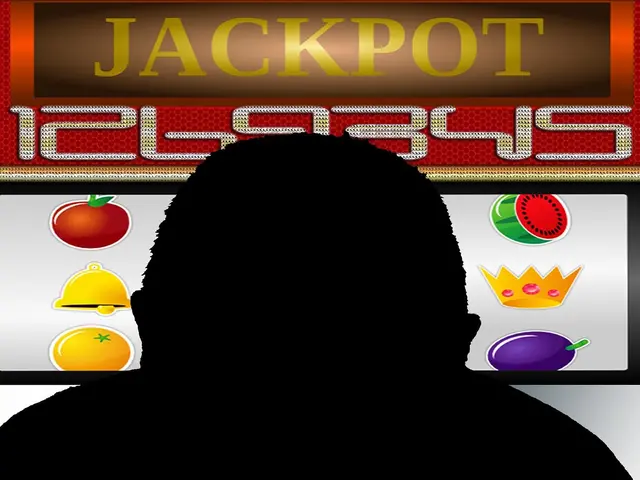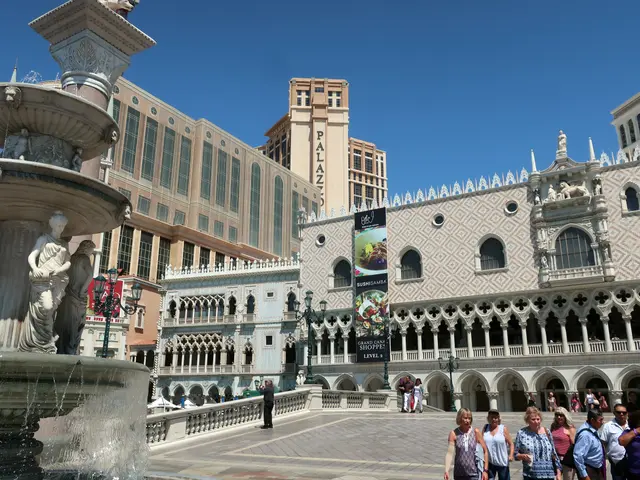Thailand's Opposition Party Demands the Government Surrender on the Casino Expansion Issue
In a surprising turn of events, Thailand has withdrawn the draft law that would have legalized casino resorts, indefinitely halting efforts to authorize casino gambling. The decision comes as a result of political instability, growing public opposition, and concerns about problem gambling and money laundering [3][4][5].
The proposed Entertainment Complex Bill, which allowed for two casinos in Bangkok and one each in Chon Buri, Chiang Mai, and Phuket, was initially approved by the government in January 2025 [1]. The bill aimed to issue five casino licenses in these locations to boost tourism and economic recovery. However, opposition from political factions, such as the Bhumjaithai Party leaving the ruling coalition, and widespread public concerns caused the government to delay and eventually retract the proposal [2][4].
The withdrawal of the bill means that global casino operators like Las Vegas Sands, MGM, and Genting will have to wait to enter the Thai market, as the opportunity to operate legal casinos in the near future is now on hold [3][5].
The decision to withdraw the bill comes at a time when Thailand's economy is facing challenges. The World Bank has cut Thailand's growth outlook, predicting a slowdown to 1.8% this year and 1.7% in 2026, due to global and domestic headwinds, including weaker exports and tourism [6]. The decline in arrivals from China, a major source of tourists, has particularly impacted the Thai tourism industry [7].
Despite these challenges, Thailand welcomed 35 million foreign visitors in 2024, marking a 15% year-over-year increase, and tourism spending amounted to approximately $42.7 billion, a post-pandemic peak, but still 23% below the 2019 spending of $55.3 billion [8].
Interestingly, most gamblers in Thailand are heads of households [9]. Underground gambling hubs are widespread in the country, and operators of such businesses can face fines of up to 200K baht (US$6,200) and 10 years imprisonment [10].
The People's Party, the largest opposition group in the National Assembly, is urging the controlling Pheu Thai party to abandon the Entertainment Complex Bill, with civic groups and organizations that work to stop problem gambling joining in the opposition [2]. The US State Department considers Thailand to be relatively safe to travel to, with exceptions being Yala, Pattani, and Narathiwat due to ongoing insurgent activities [11].
As of August 2025, Thailand's government, which has a slim majority in the National Assembly with 253 seats, is facing calls from opposition parties to cancel the casino bill [12]. The future of casino gambling in Thailand remains uncertain, with the government focusing on addressing the current economic challenges and political instability.
- The proposed Entertainment Complex Bill, which intended to legalize casinos in Bangkok and other provinces, was initially approved by the Thai government in January 2025.
- Despite the economic challenges, Thailand welcomed a significant number of foreign visitors in 2024, marking a 15% increase, but still 23% below the 2019 spending.
- The withdrawal of the Entertainment Complex Bill has put the plans of global casino operators like Las Vegas Sands, MGM, and Genting on hold, as the opportunity to operate legal casinos in Thailand is now indefinitely delayed.
- The People's Party, the largest opposition group in the National Assembly, is urging the controlling Pheu Thai party to abandon the Entertainment Complex Bill.
- Underground gambling hubs are widespread in Thailand, with operators facing fines of up to 200K baht (US$6,200) and 10 years imprisonment.
- Most gamblers in Thailand are heads of households, indicating a deep-rooted gambling culture in the country.
- In response to political instability and growing public opposition, the Thai government has indefinitely halted efforts to authorize casino gambling, leaving the future of casino gambling in Thailand uncertain.






